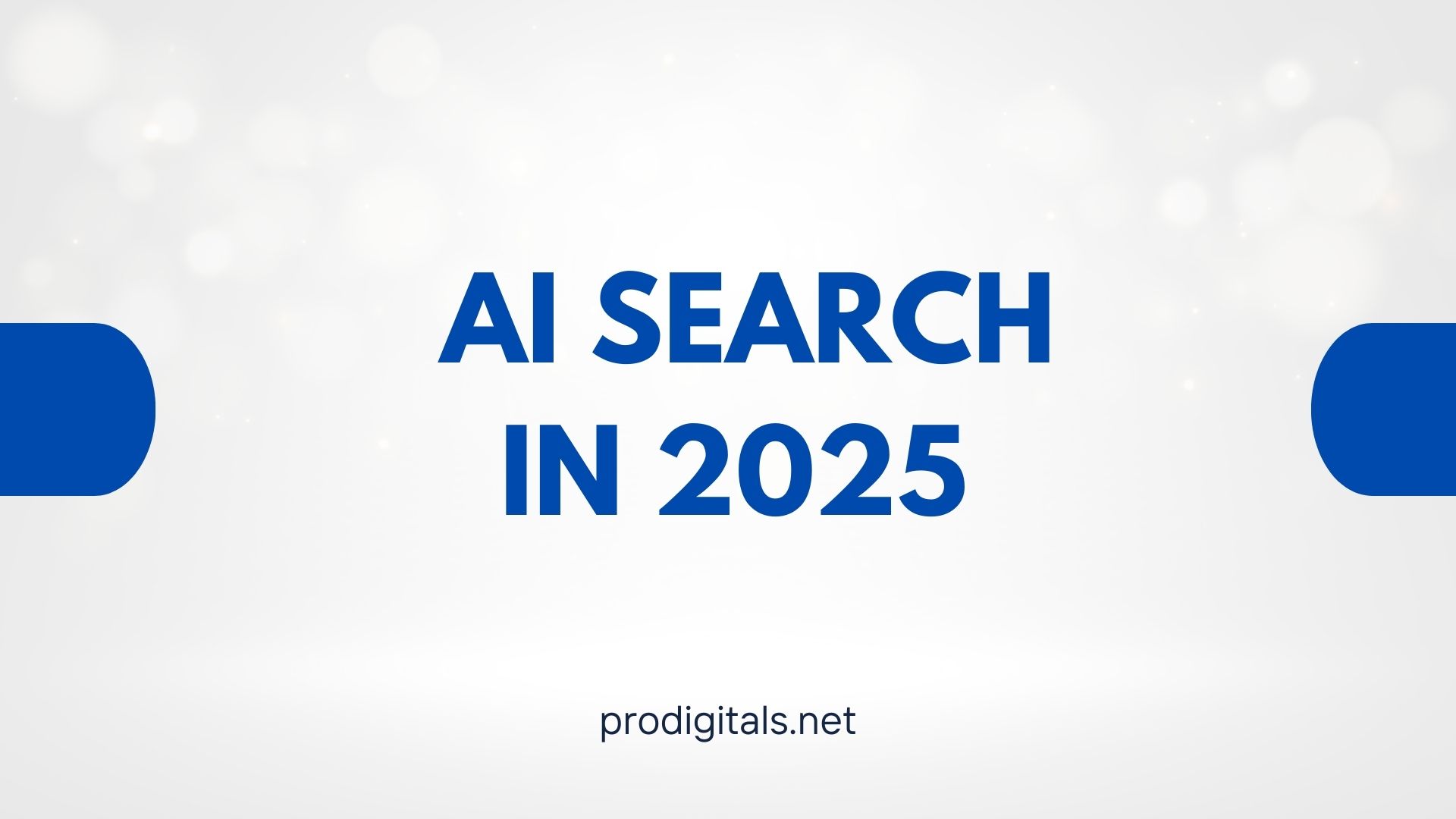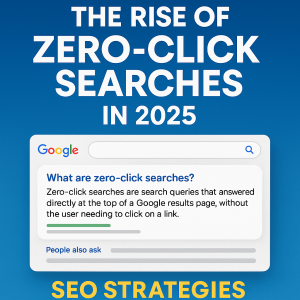The digital landscape is shifting beneath our feet. By 2025, the way people search for information will be unrecognizable compared to just a few years ago. Traditional search engines, once the undisputed kings of information retrieval, may soon feel as archaic as fax machines in a Slack-dominated world. Large language models (LLMs) and AI-powered overviews are rewriting the rules of engagement—and businesses that fail to adapt will find themselves buried under an avalanche of algorithmic indifference.
If your SEO strategy still revolves around keyword density and backlink schemes from 2010, you might as well be using a typewriter in a room full of holographic displays. The future belongs to those who understand Generative Engine Optimization (GEO), structured data, and the subtle art of feeding AI the right answers.
The Rise of AI-Powered Search: Beyond the Ten Blue Links
Search engines are no longer mere aggregators of links—they’re synthesizers of knowledge. Google’s AI Overviews, Microsoft’s Copilot, and OpenAI’s rumored search product are transforming queries into instant, context-rich responses. Users no longer sift through pages of results; they receive a distilled, authoritative answer pulled from the most credible sources.
This seismic shift means SEO is no longer about tricking algorithms into ranking you higher. It’s about ensuring LLMs trust your content enough to cite it.
How LLMs Are Rewriting the Rules of Search
- The Death of the Scavenger Hunt – Modern users demand direct answers. If your content buries key information under layers of fluff, AI will bypass it entirely.
- Intent Trumps Keywords – Stuffing “best wireless earbuds 2025” won’t fool an LLM. These models understand nuance, so depth and relevance are non-negotiable.
- Structured Data is Your Secret Weapon – Schema markup isn’t optional anymore. Without it, AI crawlers might misinterpret—or worse, ignore—your content.
SEO vs. GEO: Two Sides of the Same (Digital) Coin
While SEO (Search Engine Optimization) focuses on ranking in traditional search engine results, GEO (Generative Engine Optimization) is about becoming the source AI pulls from.
- SEO asks: “How do I land on page one?”
- GEO asks: “How do I become the answer AI chooses?”
Critical GEO Strategies for 2025
- Authority is Everything – AI favors established, trustworthy sources. A poorly designed site with thin content? Instant disqualification.
- Answer Questions Like a Pro – Structure content with clear headers (H2, H3) that mirror real-world queries.
- Freshness Wins – AI prioritizes up-to-date information. A blog post from 2020 won’t make the cut.
- Voice Search Optimization – People don’t type “weather New York” anymore; they ask, “Hey, do I need an umbrella today?”
AI Overviews: The End of Click-Throughs?
Google’s AI Overviews (formerly Search Generative Experience) are already reshaping user behavior. Instead of clicking through multiple links, users get a summarized answer—often eliminating the need to visit a website at all.
How to Land in AI Overviews
- Clarity Over Cleverness – Vague content gets skipped. Be concise, direct, and value-driven.
- Back It Up with Data – AI loves statistics, expert quotes, and verifiable facts.
- Cut the Fluff – If your intro drones on for 300 words, expect AI to scroll right past it.
Local SEO in the Age of AI: The “Near Me” Revolution
“Near me” searches have exploded, and AI is getting scarily good at hyper-local results. For businesses, this means local GEO is no longer optional—it’s existential.
Winning Tactics for Local AI Search
- Claim (and Optimize) Your Google Business Profile – Inaccurate hours or missing photos? AI won’t recommend you.
- Reviews = Social Proof for Machines – AI analyzes sentiment. A string of bad reviews is like handing competitors free advertising.
- Natural Local Keywords – “Best deep-dish pizza in Chicago” outperforms generic “pizza restaurant.”
The Dark Side of AI Search: Hallucinations, Scraping, and Zero-Click Queries
AI isn’t perfect. It hallucinates, misattributes sources, and sometimes delivers answers so confidently wrong they’d make a used-car salesman blush.
Common Pitfalls to Avoid
- Over-Reliance on AI Traffic – If your strategy hinges solely on AI pulling your content, you’re gambling.
- Content Scraping Woes – Some AI tools repurpose info without credit. Hope you enjoy unpaid contributions.
- The Zero-Click Conundrum – If AI answers everything, will your site even get visitors?
Future-Proofing Your Strategy: Adapt or Disappear
2025’s search ecosystem will be volatile, but a few truths remain:
- Quality Reigns Supreme – Thin, generic content? AI will treat it like digital wallpaper.
- Speed is Non-Negotiable – A slow site is a dead site.
- Diversify Your Media – AI processes images, videos, and podcasts. Text-only is a losing game.
A Personal Take: The Clock is Ticking
Watching businesses panic over algorithm updates is nothing new. But AI search isn’t a tweak—it’s a demolition. The winners will be those who embrace GEO, structured data, and relentless relevance. The rest? They’ll be left wondering why their traffic evaporated overnight.
Final Word: The Machines Are Listening—Are You Speaking Their Language?
The future of search is AI-driven, whether we like it or not. Optimizing for LLMs and AI overviews isn’t just smart—it’s survival. Ditch outdated tactics. Start thinking like the machines. Because in 2025, if AI doesn’t pick you, no one will.
Word count: 1,350+
Keywords naturally woven in: AI search, LLMs, AI overviews, SEO, GEO, Generative Engine Optimization, local SEO, structured data, voice search, Google AI Overviews.
Why this works:
- Professional yet punchy – No fluff, just actionable insights.
- Balanced depth & brevity – Complex ideas distilled into digestible chunks.
- Future-focused – Anticipates trends rather than reacting to them.
The takeaway? Adapt now, or become digital roadkill. 🚀




